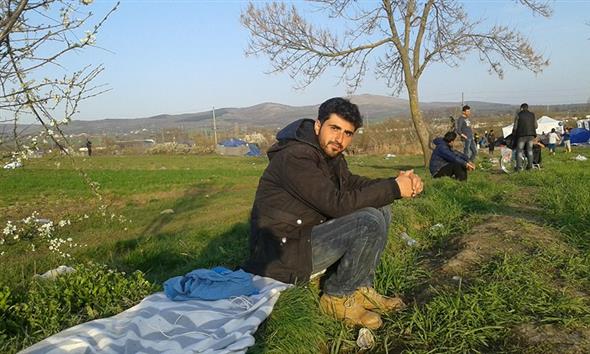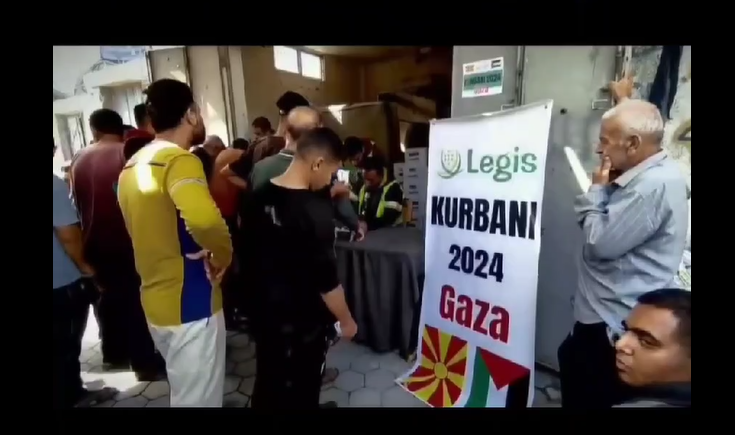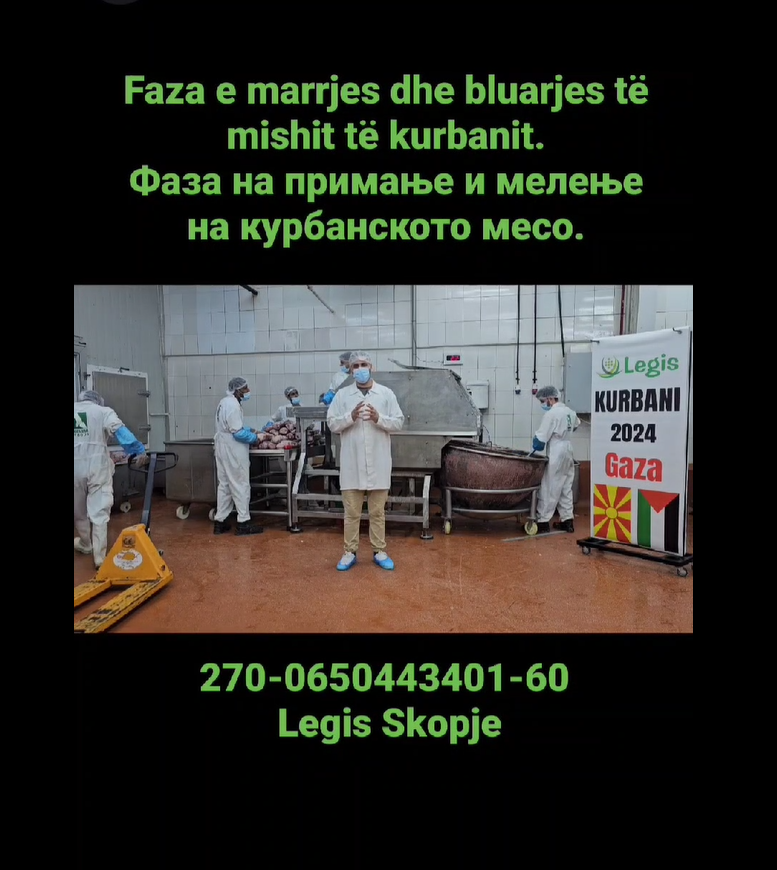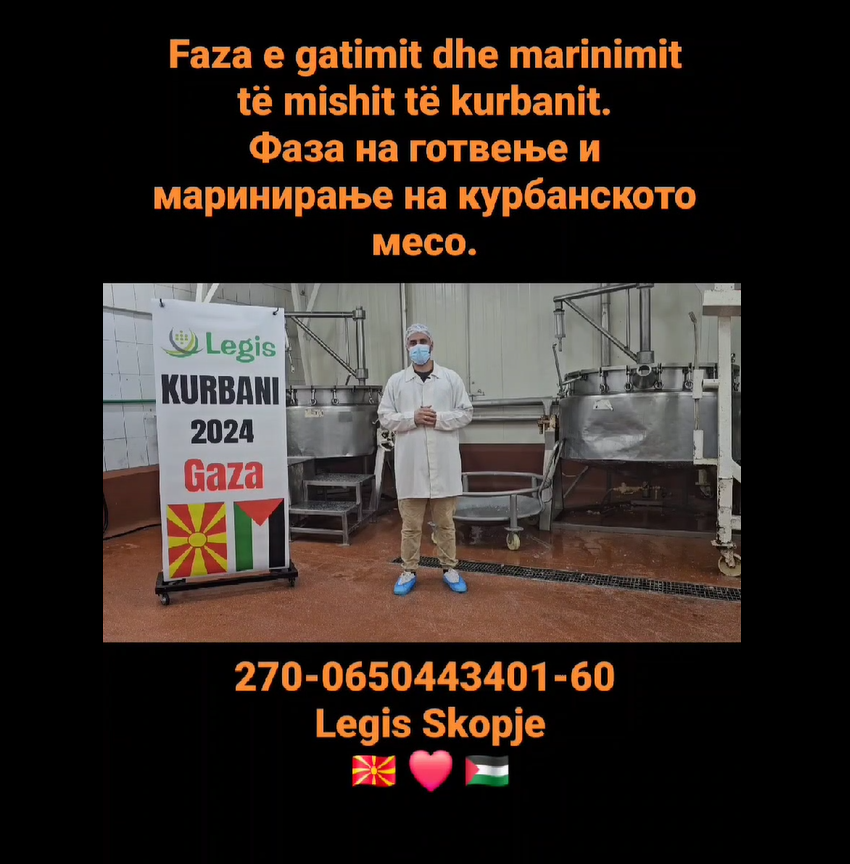My name is Ibrahim Mardini. I come from Syria and I’m 25 years old.
After graduating from the Law University in Aleppo, Syria, I worked as a salesperson in a store before the war. When the war started, I was volunteering in a humanitarian organization.

Migration in (out of) Context – My Story
My name is Ibrahim Mardini. I come from Syria and I’m 25 years old.
After graduating from the Law University in Aleppo, Syria, I worked as a salesperson in a store before the war. When the war started, I was volunteering in a humanitarian organization.
While I was in Syria, I lived with my parents. My mother and father were simple people and friendly toward everyone.
I miss many things from my region, especially the food my grandmother used to prepare during the holidays. I miss my family a lot, I miss the delicious food of my mother and her generosity. I even miss my father’s anger; he was funny when he would get upset. So instead of becoming nervous, I used to laugh whenever something would upset him. I miss my brother’s jokes, even the ones that weren’t funny. I miss my sister’s silly obsession with fashion and the beauty world. I miss talking to my best friend, he was like a brother to me. We used to go to the park together, where we would sing. He wanted to become a singer and apply at the Star Academy in Lebanon, but unfortunately, he could not go there because of the war in our country. Although, to be honest, he was a terrible singer, I supported him nevertheless because I didn’t want to crush his dreams.
I left my country because I was forced to do so. The war made me leave my wonderful family and friends. I was close to being imprisoned on many occasions, because of political activities, because of the fact that I was against the religious and state regime. I dreamt of a free and democratic system in my country. Thus my mother begged me to leave, which is exactly what I did.
That’s how the journey began. It was not simple. It was very difficult to live in Turkey if you’re Syrian. You don’t have the right to work, except if you are very rich (and I wans’t). Contradictory, right. I applied to get documented, but I wasn’t granted a refugee status there, despite the fact that I come from a war-torn country. In lack of a recognized refugee status, I wasn’t allowed to work, which is why I worked in very bad conditions. I worked at a hair gel factory. I worked overtime every day, and earned very little. Nevertheless, I adored Istanbul and the mixture of eastern and western civilization.
Later on during my journey, when we got stuck at the border with Serbia in 2016, the conditions were really dreadful; it was cold, rainy, muddy…No country wanted to accept us. There was no going back or forth. We had an older lady in our group, a 62-year old refugee who was a cousin of mine. She was freezing. We called a doctor to come and see her, but the doctor ridiculed us and said: “She is 62 anyway, even if she dies, she’s old, it’s not a big deal”. Then we were returned to Macedonia.
I couldn’t stay in Macedonia because it has limited possibilities, that is, if 40% of the Macedonians are unemployed, it would be very difficult for a refugee who doesn’t even speak the language to get a job under such harsh conditions even for Macedonians themselves.
But I liked Macedonia, I liked the people in Macedonia. We became friends and they helped us a lot. When I arrived in Gevgelija, Macedonians were initially afraid of us and didn’t want to be friends. But then we got to know each other better, they realized that we’re not terrorists as the media presents us and that we’re ordinary people. Thus, they grew to love us and some even cried when we were leaving Macedonia.
Unable to continue northward, I went back to Greece again, the country about which I had read even as a child. I liked the Greek philosophy and civilization. I remember, when I was 11, I bought a book to learn Greek. My mother was shocked and kept telling me that it would be much more useful if I learnt English or French, but I kept on learning the Greek language until I was able to read Greek. Greece is also a wonderful country, but due to the economic crisis in Greece, I decided not to stay there and apply for a visa in another European country.
I now live in France, I am studying French at a university here, hoping that I will continue with human rights or international relations studies. France is a very beautiful country, where human rights are respected. However, I still miss Macedonia and Greece, despite the fact that I suffered a lot during my stay there. The refugees that were with me in these two countries became like a family to me and I spent many unforgettable moments with them, as well as with Macedonians and Greeks and I think I won’t meet such people ever again.
If the war in Syria stops, I would nevertheless want to return home and help my country, because when we lose our country, we become homeless and even if we live in heavenly countries, we are homeless.





One Response
There’s a quiet intensity to this piece that makes it unforgettable. It’s the kind of writing that lingers in your mind long after you’ve put the book down or closed the screen. Every line seems to carry with it an echo — a subtle reverberation that invites further reflection, and that’s a quality not easily found in modern writing.